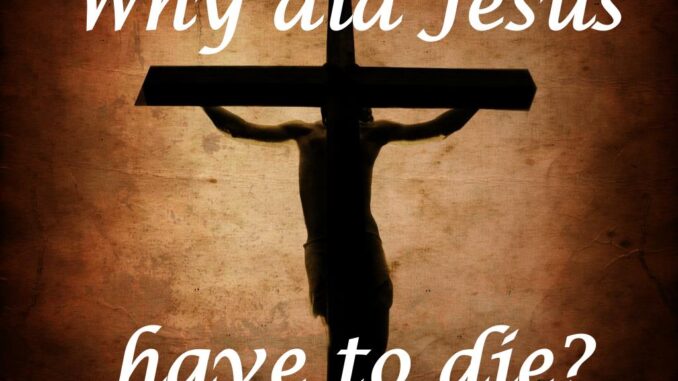
Why did Jesus die and rise again is a question that is occasionally posed. “He died and rose again for the forgiveness of our sins,” is how we phrase it. And we would be correct in our response. According to the Bible, “sin is not forgiven without the shedding of blood.” Even if that is nice, there is a deeper motivation as well. According to the Bible, Jesus not only died and rose again for us to obtain forgiveness, but much more importantly, He died and rose again for us to have life. We are given life as a result of His death and resurrection.
Because God brought His only Son into the world so that we can live through Him, John 4:9 states that “in this was displayed the love of God toward us.” Because of Jesus’ death and resurrection, we can live today.
We learn yet more reality about this life that Jesus gives us in 2 Corinthians 5:15. And He gave His life for everyone so they wouldn’t live for themselves but for the One who gave His life for them and rose from the dead. For us to live for Him, Jesus also suffered, died, and rose again. He sacrificed his life and rose from the dead so that we could live not for ourselves but Him and others.
I Thessalonians 5:9–10 highlights a third reality regarding the reasons why Jesus died and rose from the dead. Because our Lord Jesus Christ, died for us so that whether we wake up or fall asleep, we should live with Him, God has not destined us to wrath but to earn redemption through Him. For us to coexist with Him, He died and rose again. Jesus underwent a torturous death and triumphantly arose again so that we can live with Him.
Salvation is the ability to live through Christ, who died and rose again. That is loving service—He died and rose again so that we can live for Him. For us to live eternally with Him, He had to die and rise from the dead.
Jesus was not merely a man when he arrived in our world; rather, he was God dressed in human flesh. He understood that sending His one and only Son to this planet was the only way He could save us. Jesus took on human form as a kid and lived a life identical to everyone else’s—except that, He never sinned. A system of sacrifices was established after Adam’s transgression to satisfy the debt of our sins. God’s rules established the kinds of sacrifices needed to atone for various transgressions. The majority of living sacrifices were to be flawless animals. But in the New Testament, God’s Son Jesus came to earth to reconcile us to God by making the ultimate offering: his death.
In other words, God first offered the ideal sacrifice to atone for this sin of His people before He reiterated His promises of sacrifice via persons like Abraham and Moses. The perfect requirement of God’s perfect law was satisfied by God’s perfect Son. It is brilliantly simple in every way. God made Christ, who was without sin, into sin for us so that through Him, we may become the righteousness of God.
God differs from us. He is entirely just, wholly loving, and perfectly holy. “My thoughts are not your thoughts, neither are your ways my ways,” he declares in Isaiah 55:8–9. My methods are higher than your ways, and my thoughts are higher than the earth’s as the sky is higher than it.
Jesus’ death was predicted by the prophets, which is why it was necessary.
God foretold the arrival of the Messiah and warned people via prophets from Adam to Jesus of the consequences of sin. One prophet, Isaiah, characterized Him as follows:
Who among them has taken our word for it? And to whom has the LORD’s arm been made known? He had no form or majesty for us to look at, and no beauty for us to desire, growing up before him like a young plant and like a root out of dry earth. He was despised and shunned by others; he was a man of sorrows and was familiar with suffering; he was regarded as one from whom people hide their faces, and we did not value him.
Although crucifixion was the cruelest method of execution in Roman times and the appropriate punishment for the sins of all humanity, it is unclear why Jesus had to die on the cross.
The only death that could satisfy the Old Testament prophecies and predictions of what would happen to the Messiah was the crucifixion.
In Numbers Chapter 21, the crucifixion of Jesus is alluded to. The Israelites have already been freed from Egyptian slavery thanks to God. He had successfully led them across the Red Sea, drowning the Egyptian army that had been pursuing them. Then He had given them supernatural food known as manna, which appeared on the ground like dew in the morning, as well as water in the desert. He even offered assistance. Although crucifixion was the cruelest method of execution in Roman times and the appropriate punishment for the sins of all humanity, it is unclear why Jesus had to die on the cross.

Leave a Reply